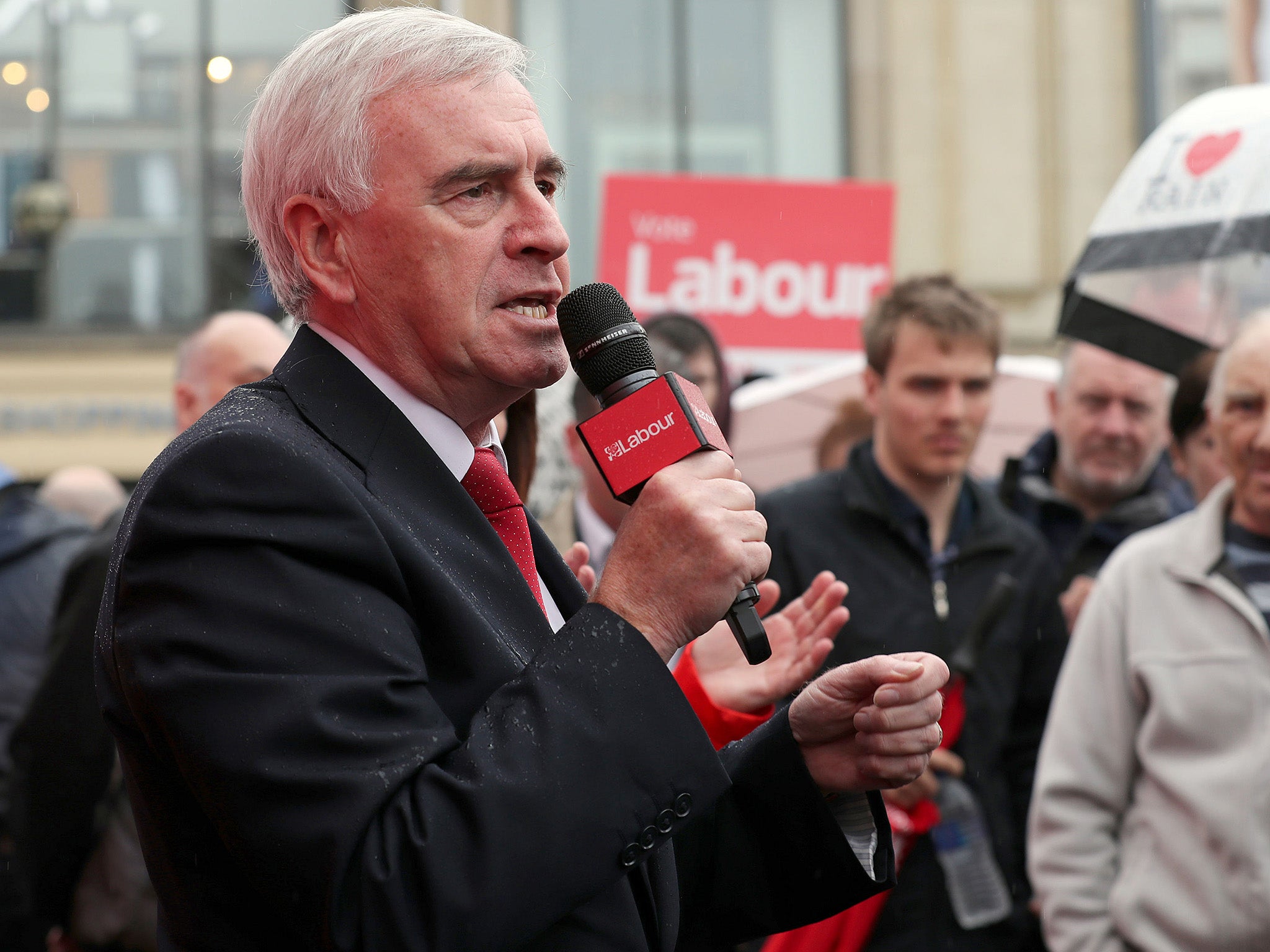Labour budget calculations will include economic impact of climate change, says John McDonnell
Shadow Chancellor John McDonnell will say that a Labour Government will put climate change at the 'very centre of government'

Your support helps us to tell the story
From reproductive rights to climate change to Big Tech, The Independent is on the ground when the story is developing. Whether it's investigating the financials of Elon Musk's pro-Trump PAC or producing our latest documentary, 'The A Word', which shines a light on the American women fighting for reproductive rights, we know how important it is to parse out the facts from the messaging.
At such a critical moment in US history, we need reporters on the ground. Your donation allows us to keep sending journalists to speak to both sides of the story.
The Independent is trusted by Americans across the entire political spectrum. And unlike many other quality news outlets, we choose not to lock Americans out of our reporting and analysis with paywalls. We believe quality journalism should be available to everyone, paid for by those who can afford it.
Your support makes all the difference.Britain’s fiscal watchdog would be required to forecast the economic impact of climate change on the public finances under a Labour government, John McDonnell is to announce.
During a speech on Tuesday the Shadow Chancellor will outline that a Jeremy Corbyn-led administration would ask the independent Office for Budget Responsibility (OBR) to include the impact of environmental damage in its annual Budget projections.
Speaking ahead of Philip Hammond’s Budget next week, Mr McDonnell will stress that addressing climate change will require “transformation of our institutions and how our economies are run”.
Citing recent research, Labour claims that the potential loss to UK GDP from climate change and environmental degradation could be as high as £75 billion a year by 2050.
Pledging to put the issue at the “very centre of government”, Mr McDonnell will announce the plan to give the OBR oversight of potential losses to the public finances, and to make it report to Parliament rather than the Treasury.
Addressing a conference organised by the Institute for Public Policy Research in London, the Shadow Chancellor will say that the public deserves to know the impacts “we might expect on the national purse from the degradation of our environment.”
“Sound, responsible economic management should already be accounting for this,” he will add. “We'll make sure the OBR has the resources needed to deliver the best available modelling of the economic impacts of the environment.
“It will become a new centre of expertise for environmental macroeconomics.
“And we will make sure not just the next Labour government, but future governments, will be absolutely committed to addressing this, our greatest single public challenge.”
Greenpeace UK chief scientist Doug Parr said: “Major companies and financial institutions have already started factoring in the impacts of climate change in their forecasts, so it's right that the UK government should do the same for the public purse.
“Not all environmental degradation can be translated into monetary values, but if you just look at the billions of pounds of damage caused by floods, you can see why the impact of climate change on the government's balance sheets cannot be ignored.
“Having to take this into account in their long-term economic forecasts may help concentrate the minds of future governments on the urgency and scale of the challenge we face.”
Friends of the Earth chief executive Craig Bennett said: “This is welcome news - for decades successive governments have failed to tackle climate change and we have now built up the most appalling ecological debt for future generations.
“Climate change is one of the biggest threats to our global economy, and it could easily dwarf the huge financial crisis from which the world is still recovering.”
Karen Ellis, WWF's economist, warned that the winter floods of 2013/14 cost an estimated £1.3 billion.
“From increased risks of flooding to soil erosion, drought and air pollution, our environment is changing quicker than many people realise,” she said.
Join our commenting forum
Join thought-provoking conversations, follow other Independent readers and see their replies
0Comments